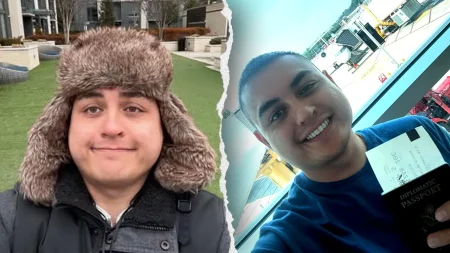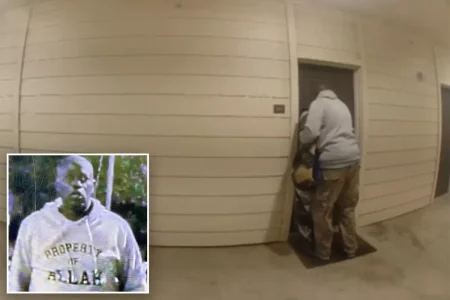Matthew Livelsberger, the man responsible for the Las Vegas Cybertruck bombing on New Year’s Day 2024, has been described by a friend of his first wife as a troubled individual who “preyed” on his then-spouse and mocked her struggles with depression. Stacie Wilssens, who knew the couple during their time in Colorado Springs around 2012, painted a picture of a strained and unstable relationship, characterized by Livelsberger’s “bizarre and unhealthy” behavior. While Wilssens refrained from detailing the specifics of Livelsberger’s alleged predatory actions towards Sara, her strong disapproval of him was evident in her preference to spend time with Sara primarily when Livelsberger was deployed with the Army.
The accounts of Livelsberger’s first marriage offer a glimpse into a relationship marked by instability and emotional distress. Wilssens recounted how Sara struggled with depression during Livelsberger’s deployments, and how he would allegedly mock her attempts to improve her mental health upon his return. The frequent separations and Livelsberger’s alleged insensitivity seemingly created a turbulent environment for Sara, with Wilssens noting a lack of stability and steadiness in their relationship. The couple’s contrasting political views, with Sara supporting Bernie Sanders and Livelsberger backing Donald Trump in the 2016 election, further underscored their fundamental differences. This stark contrast in ideologies likely contributed to the growing divide between them, adding another layer of complexity to their already strained relationship.
A video from 2016, posted on Sara’s Facebook page, offers a brief, albeit revealing, snapshot of their dynamic. The video shows the couple preparing for a vacation, with Livelsberger playfully referring to Sara as “Sara Beans.” However, the seemingly lighthearted moment is tinged with a controlling undertone as Livelsberger cautions Sara against being “weird” at the airport, lest she embarrass him. This incident, though seemingly minor, hints at a potential power imbalance within the relationship, with Livelsberger seemingly dictating acceptable behavior for his wife. This controlling behavior, coupled with the previously mentioned allegations of mocking Sara’s mental health struggles, suggests a pattern of emotional manipulation and disregard for her well-being.
Following their divorce in 2018, Sara left Colorado, remarried, and has reportedly regained her health and stability. Livelsberger also remarried in 2022 and had a daughter with his new wife. However, this newfound domestic life was short-lived. Just a week before the bombing, his second wife ended their relationship, allegedly due to Livelsberger’s infidelity. Law enforcement sources indicate that the day after Christmas, following the confrontation about his infidelity, Livelsberger left his Colorado Springs home. He then rented the Tesla Cybertruck through the peer-to-peer car rental app Turo and drove to Las Vegas.
On New Year’s Day, Livelsberger parked the rented Cybertruck in front of the Trump International Hotel in Las Vegas. He then detonated explosives hidden within the vehicle and shot himself in the head. This shocking act has left investigators grappling with the complex question of motive. Was it a personal act driven by despair over his recent breakup and the loss of his family? Or was there a political dimension, given the location of the bombing outside a Trump-branded property and the use of a Tesla, a company associated with Elon Musk, a prominent figure often linked to right-wing political circles? The FBI is actively investigating both possibilities, acknowledging the symbolic significance of the location and the vehicle while emphasizing the need for concrete evidence to determine the true motivation behind the attack.
The investigation into Livelsberger’s motive is further complicated by the apparent lack of a clear and readily identifiable explanation. His military background as a highly decorated Green Beret, his recent return from an overseas assignment in Germany, and his being on approved leave at the time of the incident add further layers of complexity to the puzzle. These factors raise questions about potential stressors related to his military service, the transition back to civilian life, or other unknown personal struggles that may have contributed to his drastic actions. The combination of personal turmoil, the choice of a high-profile location, and the use of a symbolically charged vehicle creates a tangled web of potential motivations that investigators are working to unravel. The incident highlights the difficulty in understanding the complex factors that can drive individuals to commit acts of violence, particularly when those acts involve a mix of personal and potentially political elements.











